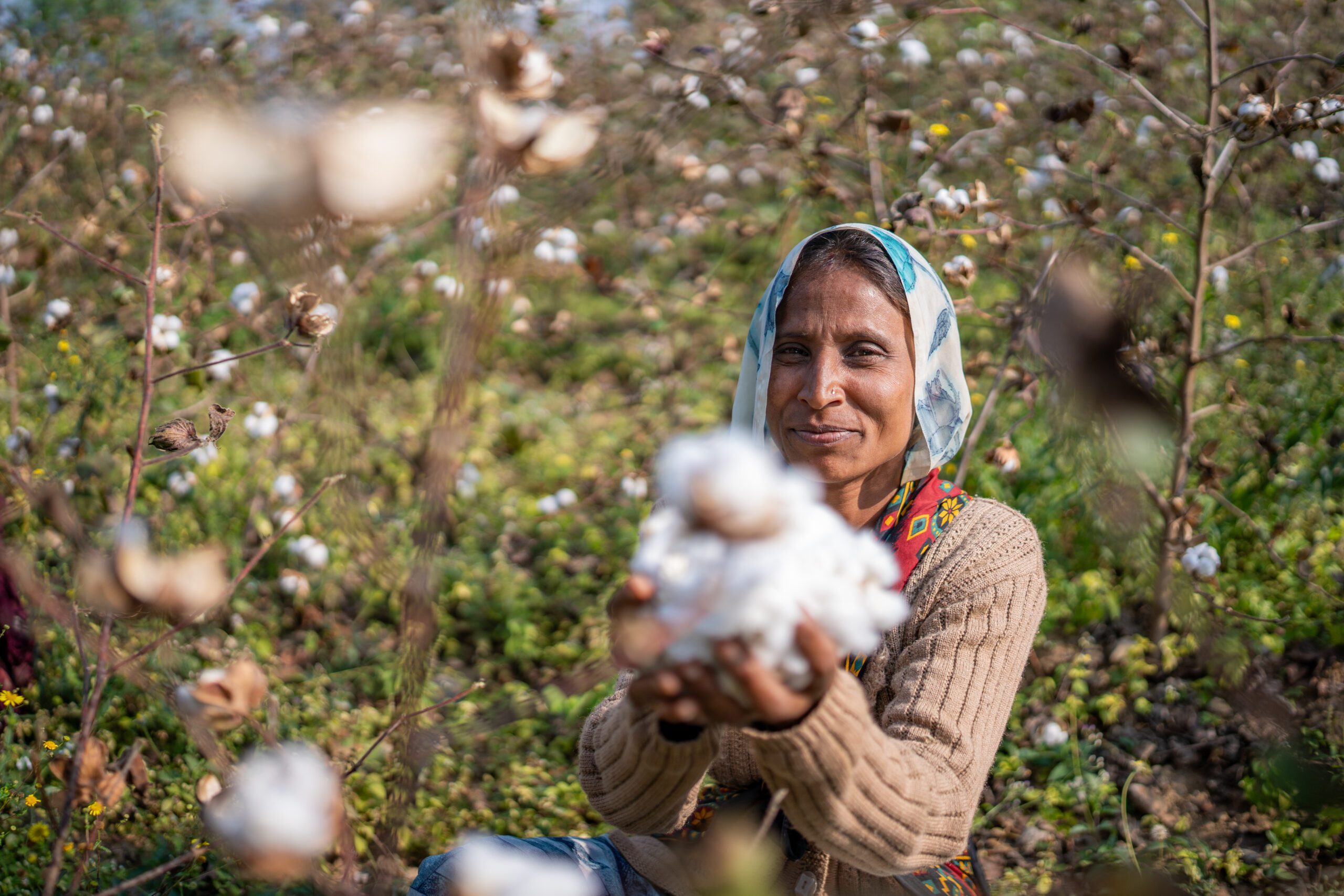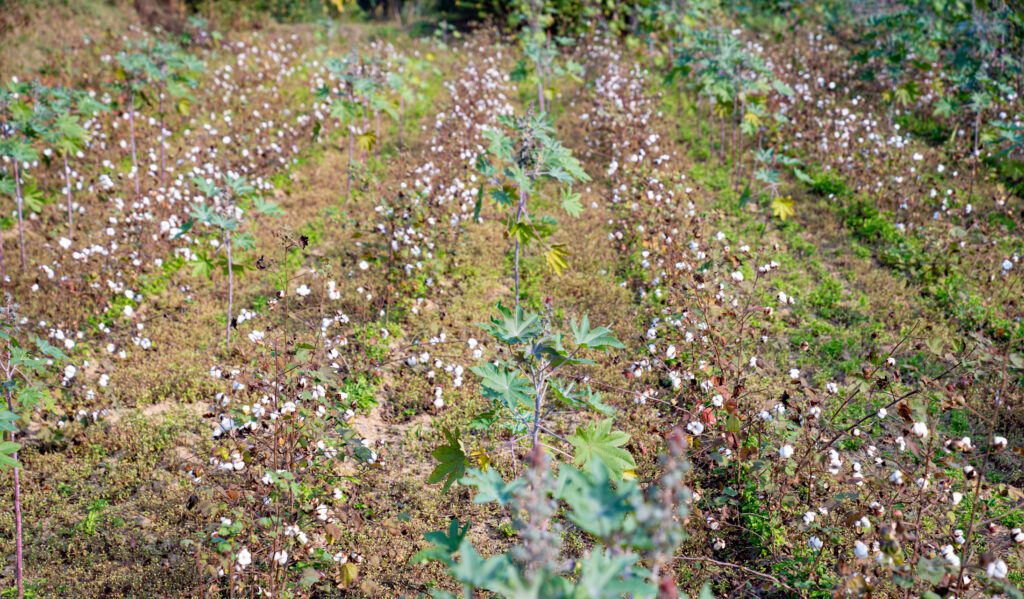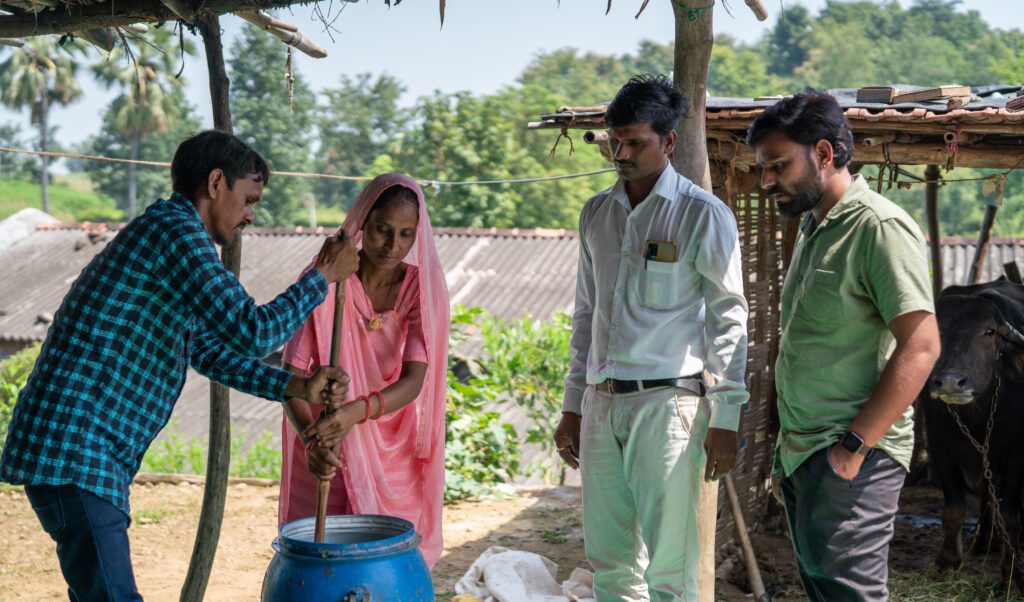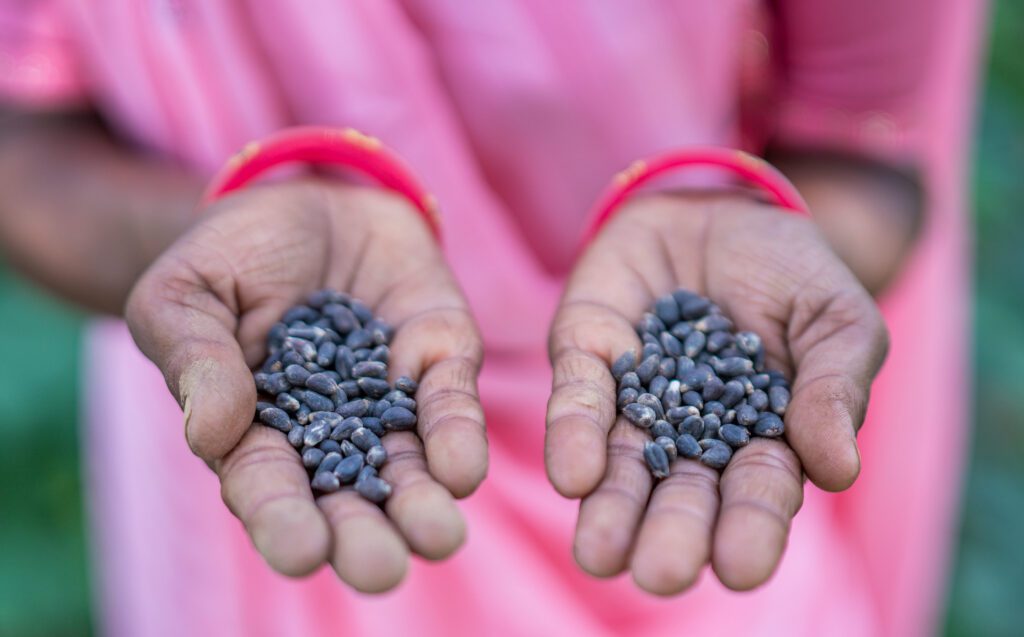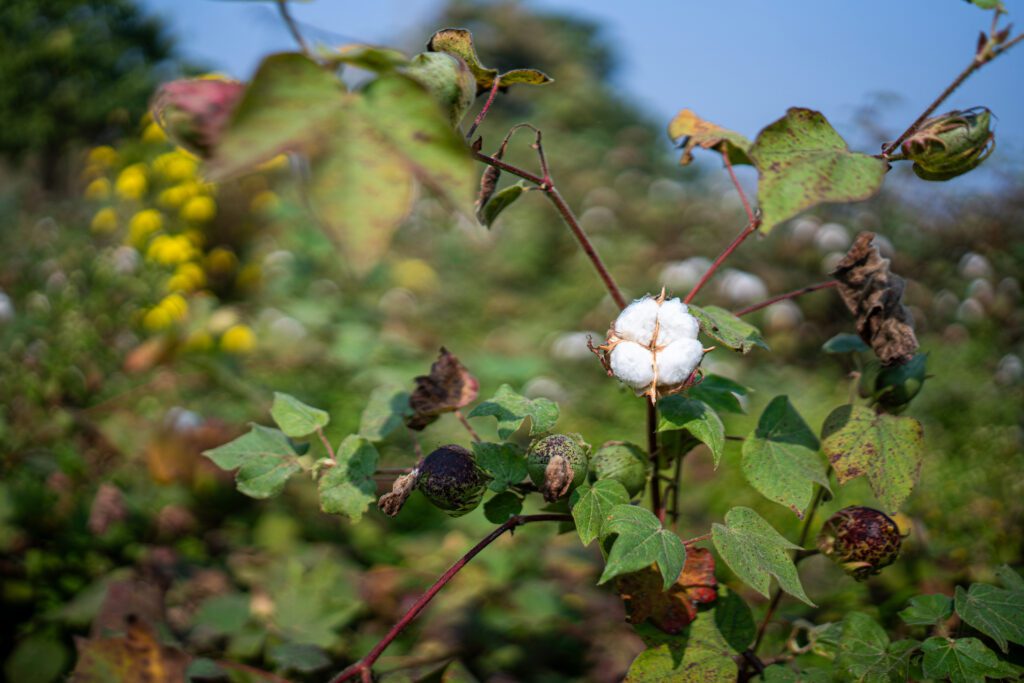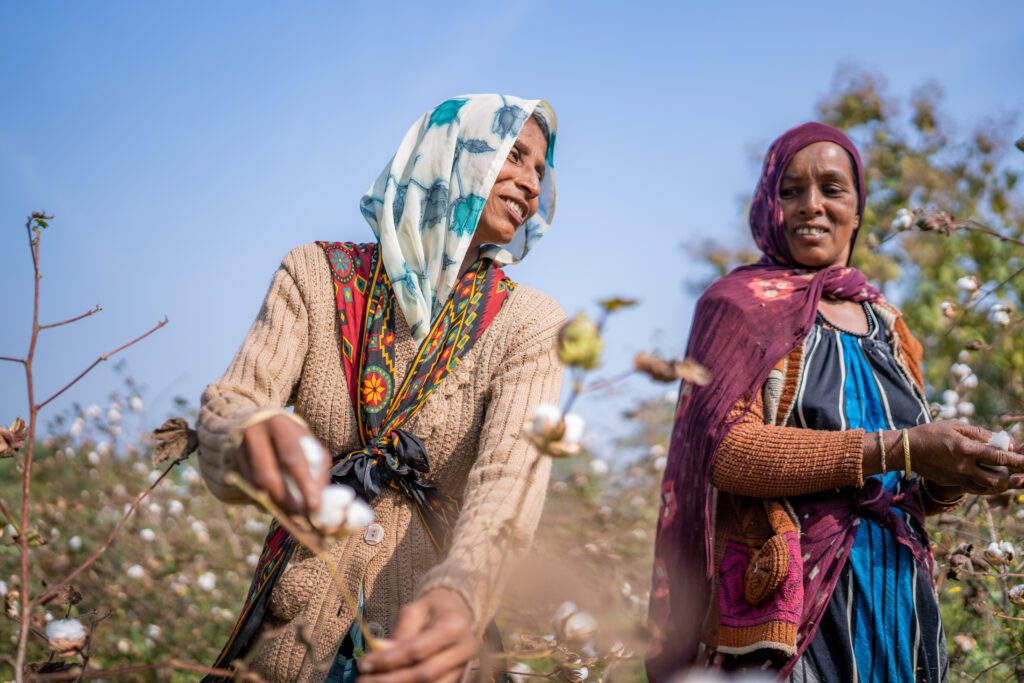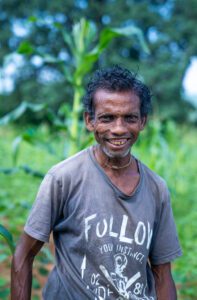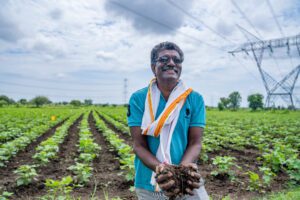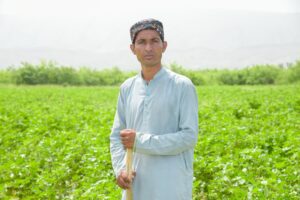 Pakistan
Pakistan Seeds of Change: Rathava’s transition to organic cotton farming
In the heart of Oliyakalam village, amidst the serene landscapes of Gujarat, resides a 46-year-old farmer, Rathava Methaliben. Rathava wears a traditional saree, adorned with colourful patterns that tell the story of her cultural heritage.
Oliyakalam village, a place in the Chhota Udaipur district of Gujarat, India is situated 80 kilometres to the east of Vadodara, the district headquarters. During the standing crop season, Oliyakalam experiences warm weather with temperature reaching 32.5°C. Broken clouds occasionally offer respite from the relentless sun, casting patches of shade over the village.
Rathava’s home, an integral part of this tight-knit village, accommodates her joint family, including her elder son’s family—10 individuals living under one roof. The house is a symbol of the strength and resilience of the Rathava family, where generations have worked together to make a living from the land.
Not long ago, Rathava made a courageous decision to transition from conventional cotton farming, which heavily relies on harmful chemicals, to organic cotton practices. This transition was not without its challenges, but Rathava was motivated by the encouragement and support of OCA and its Implementing Partners in the region.
She enrolled in OCA’s Farm Programme and chose to cultivate organic cotton. With the help of OCA`s Implementing Partners, she is on her way to make a smooth transition to organic farming. Rathava has also received free non-genetically modified seeds through OCA’s Seed Programme and training on how to create bio-inputs for pest control. She prepared farmyard manure from her livestock, which proved to be an excellent organic fertilizer for her cotton fields.
Of the four acres she owned, 25% was allocated for cotton cultivation, with red gram as an intercrop, ensuring that the entire produce was used for family consumption.
While the journey into organic cotton farming has brought many benefits, Rathava faces her fair share of challenges. Since, Non- Bacillus thuringiensis (BT) seeds are scarce in the market, it is difficult to find good-quality seeds without support. Rathava emphasises the importance of seed cotton procurement by the Implementing Partners and timely payment of premiums, are vital for her and other farmers to continue their organic farming practices.
Finding non-genetically modified seeds and preparing bio-inputs is hard.
This challenge is not unique to Rathava alone. In fact, this represents a broader issue faced by many in-conversion farmers under our programme, where procurement did not happen – a significant number that echoes Rathava’s plight. In this particular project, procurement was not done by the Brand, and consequently, the Implementing Partner did not buy the seed cotton from the farmers. As a result, Rathava, like numerous others, would have incurred losses due to reduced yield and no premium payment, affecting her earnings compared to previous years.
Despite the challenges, Rathava remains resolute in her commitment to organic cotton farming. She knows that while the yields may be slightly lower, her efforts contribute to a healthier environment, free from the harmful chemicals associated with conventional farming.
Rathava Methaliben’s story is one of many, a testament to the ripple effect of positivity. Her story shows that, with the right support, even in the face of challenges, farmers can adapt and thrive in the world of organic farming.
